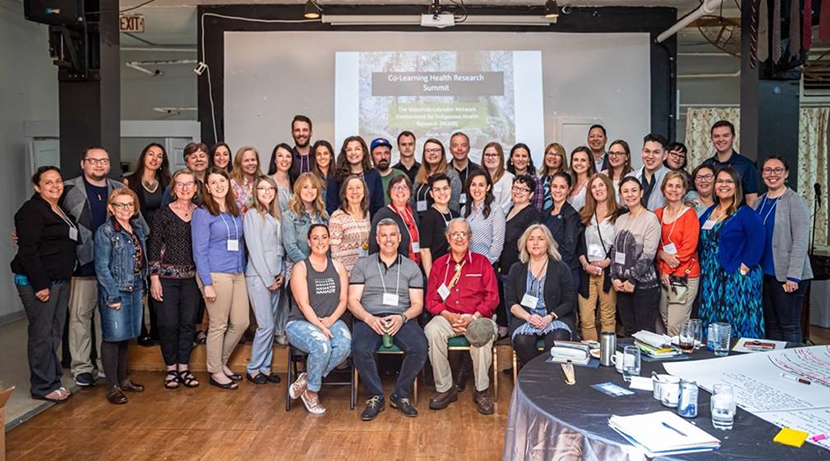Atlantic Canada Network Environment for Indigenous Health Research
NEIHR supports health research priorities of Indigenous communities in Atlantic Canada through collaboration
Dr. Debbie H. Martin, Tier II Canada Research Chair, Indigenous Peoples’ Health and Well-Being, Dalhousie University

Wabanaki-Labrador Indigenous Health Research Network (WLN), led by Dr. Martin in collaboration with representatives from 5 universities and 29 organizations, is striving to offer research capacity-building opportunities for Mi’kmaq, Inuit, Innu, Wolastoqiyik and Passamaquoddy communities in Newfoundland and Labrador, Nova Scotia, New Brunswick, and Prince Edward Island. WLN will achieve this by supporting health research priorities for the region’s residents, augmenting research capacities, engaging community-directed health research, and supporting culturally appropriate and community-specific methods of knowledge exchange. WLN completed a scoping review of Indigenous research conducted in the Atlantic region over the past 20 years. This NEIHR determined that health research differs dramatically across distinct Indigenous communities, and involves different levels of community engagement. WLN concluded that Indigenous Peoples need to be further involved in health research areas that directly impact them as participants or as leaders. WLN has a governing circle of Indigenous representatives from organizations, communities and governing bodies throughout the region that meets regularly through Zoom online or teleconference. As principal investigator of the Atlantic Indigenous Mentorship Network, which works in collaboration with the WLN on capacity building initiatives, Dr. Martin has also secured additional funding from the Dalhousie Medical Research Foundation so that Indigenous students pursuing health research can receive fellowships to support their work.
“From Indigenous communities, we’ve heard a lot about their desire for co-learning,” said Dr. Martin. “I think that Wabanaki-Labrador NEIHR has really clear principles and objectives thanks to collective input. Prior to the COVID-19 pandemic, we were able to hold a number of different Indigenous community gatherings and one-on-one meetings with Indigenous Peoples in the Atlantic region that helped us understand the distinct research priorities of different Indigenous communities. Knowing this will enable us to direct our research supports into areas that will have the greatest impact and benefit for the health and wellbeing of Indigenous Peoples in this region.”
- Date modified: